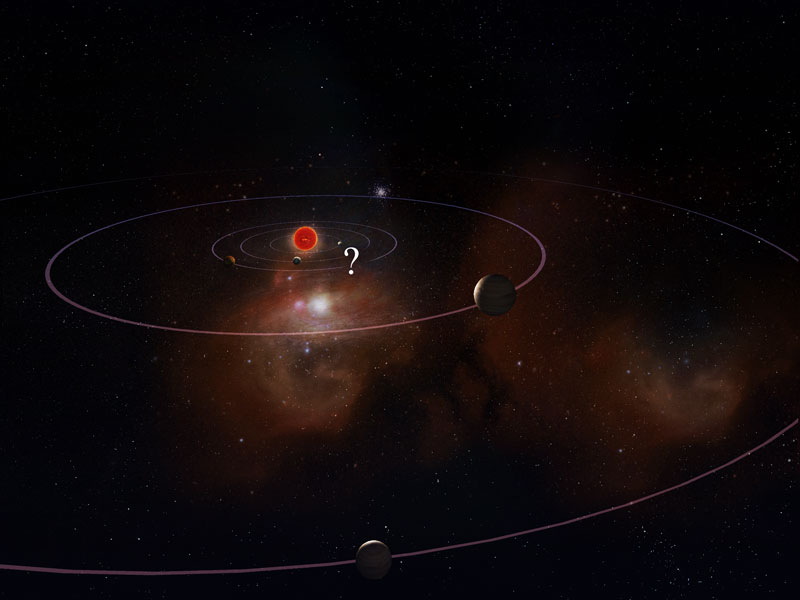
|
Explanation: How common are planetary systems like our own? Perhaps quite common, as the first system of planets like our own Solar System has been discovered using a newly adapted technique that, so far, has probed only six planetary systems. The technique, called gravitational microlensing, looks for telling brightness changes in measured starlight when a foreground star with planets chances almost directly in front of a more distant star. The distant star's light is slightly deflected in predictable ways by the gravity of the closer system. Recently a detailed analysis of microlensing system OGLE-2006-BLG-109 has related brightness variations to two planets that are similar to Jupiter and Saturn of our own Solar System. This discovery carries the tantalizing implication that interior planets, possibly including Earth-like planets, might also be common. Pictured above is an artistic conception of how the BLG-109 planetary system might look.
|
January February March April May June July August September October November December |
| ||||||||||||||||||||||||||||||||||||||||||||||||
NASA Web Site Statements, Warnings, and Disclaimers
NASA Official: Jay Norris. Specific rights apply.
A service of: LHEA at NASA / GSFC
& Michigan Tech. U.
Based on Astronomy Picture
Of the Day
Publications with keywords: Solar System - microlensing - extrasolar planet
Publications with words: Solar System - microlensing - extrasolar planet
See also:
- APOD: 2025 September 14 Á Planets of the Solar System: Tilts and Spins
- APOD: 2025 September 8 Á IRAS 04302: Butterfly Disk Planet Formation
- APOD: 2025 March 31 Á Parker: The Solar System from Near the Sun
- Solar System Family Portrait
- APOD: 2024 July 8 Á Exoplanet Zoo: Other Stars
- Temperatures on Exoplanet WASP 43b
- Epsilon Tauri: Star with Planet
